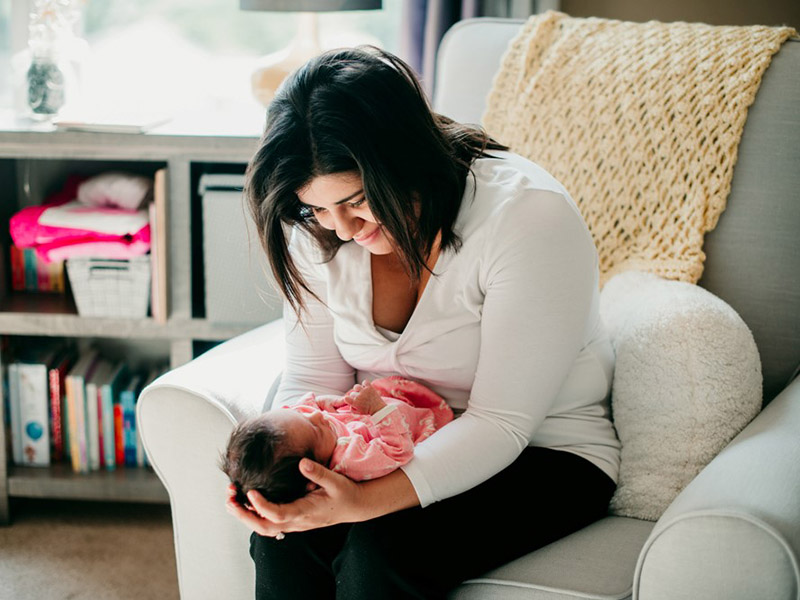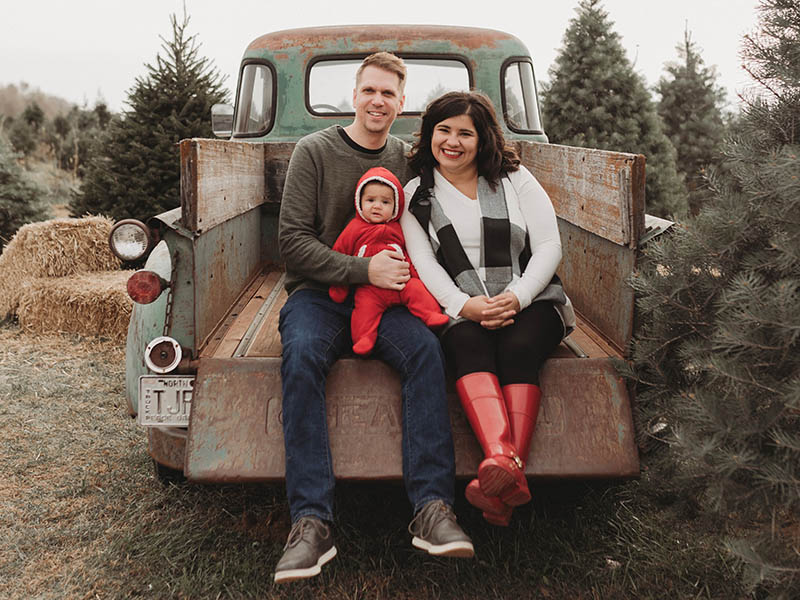At 35 weeks pregnant, blood pressure reading saved mom and daughter

Shannon Hilaire's pregnancy had been rough.
She struggled with morning sickness, insomnia, headaches, bloody noses and congestion. For four months, she had to use wrist braces and talk-to-text to alleviate pregnancy-induced carpel tunnel syndrome.
"I felt like a pregnancy bingo card," said Hilaire, who lives in Omaha, Nebraska. "Any symptom there was, I had."
But on Good Friday — in her 35th week — Hilaire's symptoms got worse. While working most of that weekend, she was unusually exhausted, woozy when she stood and had an intense headache.
On Easter morning, she was so swollen she couldn't fit into her maternity pants — and it didn't go unnoticed when she sat down for dinner with her family.
"My brother said, 'Hey sis, your feet look fat,' and I was not happy," she said. "But as I thought about it, I saw they had swollen around my sandal straps."
Hilaire already had an OB appointment scheduled the next afternoon, so she made a mental note to mention her symptoms then. That evening, she busied herself getting the nursery ready and fell into bed before remembering she had a blood pressure cuff that she'd borrowed from work. Hilaire didn't have a history of high blood pressure, but her doctor told her to take a reading if she didn't feel well.
She was exhausted but dragged herself out of bed to measure her blood pressure, closely following American Heart Association guidance by sitting with her feet on the ground and resting for five minutes before taking the reading. It may have saved her life.
"The top number was close to 200," she said.
So Hilaire went to the hospital and was "swarmed by people" who put in an IV line and strapped her to the bed in case she had a seizure.
Hilaire, who works for the American Heart Association, had asked her doctor about risks for congenital heart defects, but she never thought she could be at risk for preeclampsia, a serious complication of pregnancy characterized by high blood pressure and kidney dysfunction, and one of the leading causes of maternal death worldwide. Women with high blood pressure during pregnancy are also at an increased risk for developing high blood pressure and stroke later in life.
Hilaire's husband called her family while also trying to understand what was happening.
"I was just trying to stay calm to help keep Shannon's stress level down," Jimmy Hilaire said.
Hilaire's delivery was induced and her daughter, Holiday, was born early that Tuesday morning. But the baby wasn't breathing.
Finally, after nearly four minutes, Hilaire heard Holiday cry. She was smaller than doctors said she should be — an indication that she had stopped growing due to the preeclampsia — but healthy otherwise.
"My doctor said we wouldn't have had the same ending if I had gone to bed" without taking a blood pressure reading and going to the hospital right away, she said.
While the "cure" for preeclampsia starts with delivery, new moms remain at elevated stroke risk during the first few weeks after giving birth. Hilaire was restricted to bedrest and required to have someone with her while holding Holiday.
High blood pressure during pregnancy is common and can raise a warning flag of future conditions.
High blood pressure is also a leading cause of stroke, which affects 1 in 5 women. During American Stroke Month and National High Blood Pressure Education Month in May, the AHA is urging women to learn about stroke risks and take action to reduce them, including making lifestyle changes, taking medication as prescribed and monitoring blood pressure.
Today, Hilaire continues to take blood pressure medication. She also measures her blood pressure at least twice a week, logging it on her calendar and contacting her health care team if it's high.
She tries to eat healthy and get plenty of physical activity, taking Holiday on walks and playing with her in the yard. She also avoids her biggest vice: sugar-sweetened beverages.

"It really puts into perspective the importance of positive lifestyle changes like exercises and healthy eating," Jimmy said. "It's not about being perfect, but just developing healthier habits for a lifetime — not just for Shannon but also for Holiday."
Since she had Holiday, Hilaire has learned more about preeclampsia, which several friends have experienced. She now gifts blood pressure cuffs to friends at baby showers.
"I want them to know if something is wrong, they should know how to use it and speak to their doctor," she said.





